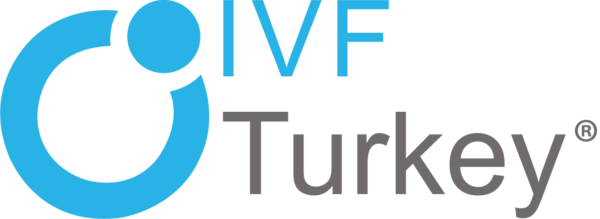Are There Medical Conditions That Might Affect Eligibility for IVF?
In Vitro Fertilization (IVF) is a widely used and effective fertility treatment for many couples struggling with infertility. However, certain medical conditions can affect a person’s eligibility for IVF. Understanding these conditions is crucial for individuals considering this treatment option. This article will delve into the medical conditions that might impact eligibility for IVF, providing a comprehensive guide to help you navigate this important aspect of fertility treatment.
| Medical Condition | Effect on IVF Eligibility and Success |
|---|
| Age of the Woman | Decreased egg quality and quantity, lower success rates with increasing age |
| Age of the Man | Reduced sperm quality and quantity with advanced age |
| Low Ovarian Reserve | Fewer eggs available for fertilization, affecting egg retrieval and success |
| Fibroids | May interfere with implantation; surgical removal might be necessary |
| Endometriosis | Affects egg quality, ovarian function, and implantation |
| Asherman’s Syndrome | Scar tissue in the uterus can hinder implantation and increase miscarriage risk |
| Polycystic Ovary Syndrome (PCOS) | Requires specific protocols to stimulate ovulation and manage OHSS risk |
| Blocked Fallopian Tubes | IVF bypasses fallopian tubes, making it a viable option for this condition |
| Low Sperm Count and Motility | Affects fertilization; ICSI can help by directly injecting sperm into egg |
| Inherited Genetic Conditions | May require PGT to screen embryos for genetic abnormalities |
| Diabetes | Uncontrolled diabetes affects fertility and pregnancy; proper management needed |
| Thyroid Disorders | Affects fertility and pregnancy outcomes; thyroid function must be stabilized |
| Obesity | Affects hormone levels and increases IVF and pregnancy complications; weight management recommended |
| Lupus and Rheumatoid Arthritis | Affects fertility and pregnancy; specialist consultation necessary for proper management |
1. Age-Related Factors
Age of the Woman: Age is a significant factor in the success of IVF. Women over the age of 35 may experience a decline in fertility due to a decrease in the quality and quantity of their eggs. While IVF can be successful for older women, the chances of success decrease with age.
Age of the Man: Although male fertility declines more gradually, advanced paternal age can also affect IVF success rates due to reduced sperm quality and quantity.
2. Ovarian Reserve
Low Ovarian Reserve: Women with a low ovarian reserve have fewer eggs available for fertilization. This condition can be due to age, genetic factors, or prior medical treatments. Low ovarian reserve can affect the number of eggs retrieved during an IVF cycle and, consequently, the overall success rates.
3. Uterine Conditions
Fibroids: Uterine fibroids are non-cancerous growths in the uterus that can interfere with implantation and pregnancy. Depending on their size and location, fibroids can affect eligibility for IVF or require surgical removal before proceeding with the treatment.
Endometriosis: This condition involves the growth of endometrial tissue outside the uterus, which can cause inflammation and scarring. Endometriosis can affect egg quality, ovarian function, and implantation, potentially impacting IVF success.
Asherman’s Syndrome: This condition, characterized by scar tissue in the uterus, can result from previous surgeries or infections. Asherman’s Syndrome can hinder embryo implantation and increase the risk of miscarriage.
4. Polycystic Ovary Syndrome (PCOS)
PCOS: This hormonal disorder affects ovulation and is a common cause of infertility. While women with PCOS can successfully undergo IVF, they may require specific treatment protocols to stimulate ovulation and manage potential complications like ovarian hyperstimulation syndrome (OHSS).
5. Tubal Conditions
Blocked Fallopian Tubes: Women with blocked or damaged fallopian tubes may not be eligible for less invasive fertility treatments like IUI but can still pursue IVF. IVF bypasses the fallopian tubes by retrieving eggs directly from the ovaries and fertilizing them in a lab.
6. Male Factor Infertility
Low Sperm Count and Motility: Male factor infertility, such as low sperm count or poor sperm motility, can affect the chances of successful fertilization. Advanced IVF techniques like Intracytoplasmic Sperm Injection (ICSI) can help address these issues by directly injecting a single sperm into an egg.
7. Genetic Disorders
Inherited Genetic Conditions: Couples with a history of genetic disorders may require preimplantation genetic testing (PGT) during IVF to screen embryos for specific genetic abnormalities. This additional step can affect the overall process and eligibility for IVF.
8. Chronic Health Conditions
Diabetes: Uncontrolled diabetes can affect both male and female fertility. Women with poorly controlled diabetes may face complications during pregnancy. Proper management of diabetes is essential before undergoing IVF.
Thyroid Disorders: Both hyperthyroidism and hypothyroidism can impact fertility and pregnancy outcomes. Thyroid function should be stabilized before starting IVF treatment.
Obesity: Excess weight can affect hormone levels, ovulation, and overall fertility. Obesity also increases the risk of complications during IVF and pregnancy. Weight loss and lifestyle changes may be recommended before proceeding with IVF.
9. Autoimmune Disorders
Lupus and Rheumatoid Arthritis: Autoimmune disorders can affect fertility and pregnancy outcomes. Medications used to manage these conditions can also impact fertility. Consultation with a specialist is crucial to manage these conditions before and during IVF.
Conclusion
IVF offers hope to many couples facing infertility, but certain medical conditions can impact eligibility and success rates. Understanding these conditions and working closely with a fertility specialist can help optimize treatment outcomes. If you have any of these medical conditions, it’s essential to discuss them with your healthcare provider to determine the best approach to IVF and increase your chances of a successful pregnancy.


